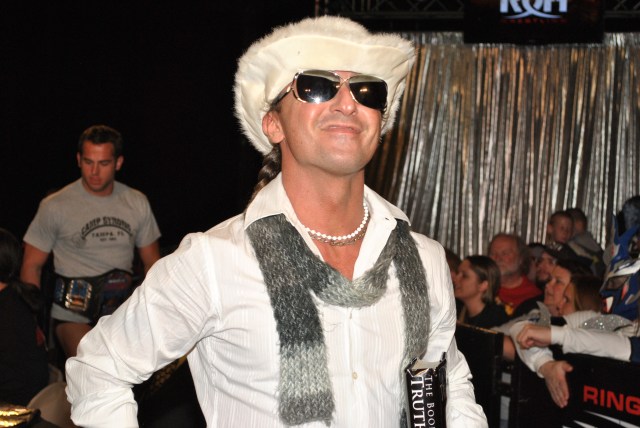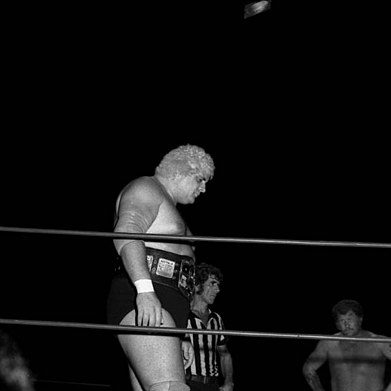 As I introduced Huracanrana to a childhood fave in Greg Valentine, something peculiar occurred to me: what the heck happened to all the great managers in professional wrestling?
As I introduced Huracanrana to a childhood fave in Greg Valentine, something peculiar occurred to me: what the heck happened to all the great managers in professional wrestling?
Sure, there are the occasional valets, but when’s the last time a truly great manager…other than perhaps Truth Martini…was expected to play a prominent role in every match? (Note: in Truth Martini’s case, he literally is a manager of both his talent and the prominent wrestling school he heads.)
This isn’t meant to belittle the great work of Stokely Hathaway or Veda Scott, both tremendously entertaining and vital to storytelling in Ring of Honor and other independent promotions. Moreover, it certainly does not aim to discredit contributions from the great Prince Nana, Famous B, So Cal Val, Leilani Kai and/or other stable heads central to feud relevance. All of these, however, accompany versus ‘manage’ their athletes.
Sure, the WWE tried the manager route with Zeb Colter, but where did that end up? Even the most political correct individual will shudder at the uncomfortable and likely unintended racist angle the man was tasked with enduring for several years’ time. It wasn’t for his lack of trying and/or commitment. Neither on the part of the wrestlers involved with the Colter storyline.
Still, Zeb Colter is arguably a far cry from the likes of Jimmy Hart, Bobby Heenan, Mr. Fuji, or Lou Albano (among others), managers arguably more popular than the talent they represented. These managers remain some of the most beloved figures of vintage wrestling, their names synonymous with the success of the WWE over that period.
Thus, it’s a bit shocking to realize the dearth of true managers in today’s wrestling world. All it takes is ten minutes of watching Erik Essex making it rain dollar bills at American Combat Wrestling to realize the value of managers to both plotlines and promos.
My theory on manager shortage is it a by-product of the modern age of independent wrestling, one with a glut of available talent and not enough matches to showcase all of them. What emerges is the second tier (for that specific promotion) wrestler serving as a pseudo manager/valet for the main eventer. Or, in the instance of Andrea, a top star on a sister promotion (Shine) serving in this capacity for another (Evolve/Full Impact Pro).
Moroever, managers – like any talent in professional wrestling – need to earn a paycheck. With all of this talent, it’s hard to justify another hand to feed when a wrestler can do double duty in a replacement function.
Also, being a full time manager is a brave commitment. It’s the recognition and simultaneous acceptance of a career dependent on (managed) others to survive, also lesser paychecks being a supporting function. Akin to referee talent, one would be hard pressed to find would-be managers lining up for the role at wrestling schools.
Sad, as recalling Valentine and the aforementioned Jimmy Hart, so much is lost without an omnipresent mouthpiece and nuisance at ringside. Likewise entertainment at interview segments, features (ala ‘Highlight Reel’), and commentary tables.
Last, Paul Heyman, of course, is literally an agent representing his client. Still, imagine the possibilities if his role was extended to a play more active role in outcomes.

You forgot two great managers.
Brian Rubright and Bryan Richards
LikeLiked by 1 person
Good point! What did you specifically enjoy about them…and what could they bring to today’s WWE/beyond?
LikeLike